Curated by Ed Boitano
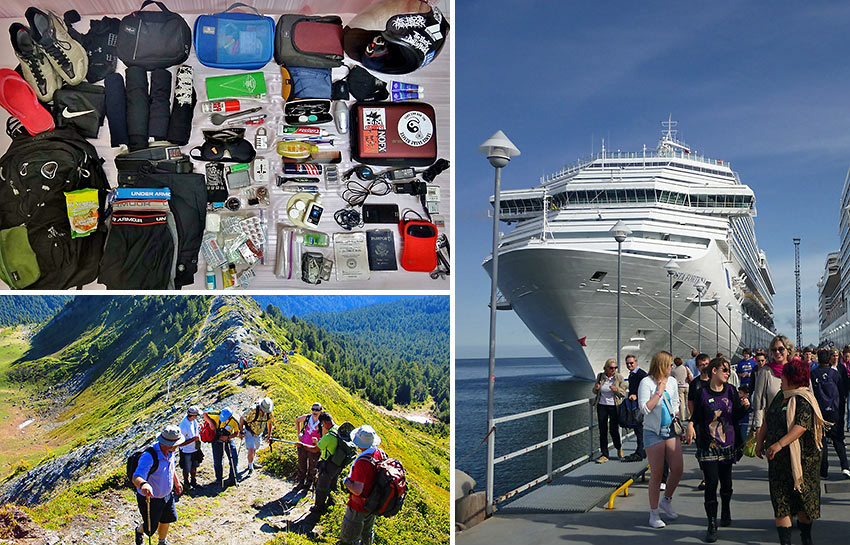
The T-Boy Society of Film & Music’s latest poll is devoted to something that we all have experienced: Travel Nightmares. Our first entry by the most esteemed Richard Carroll puts the theme in the proper context. It’s really all about ourselves and should serve as Travel Lessons Learned.
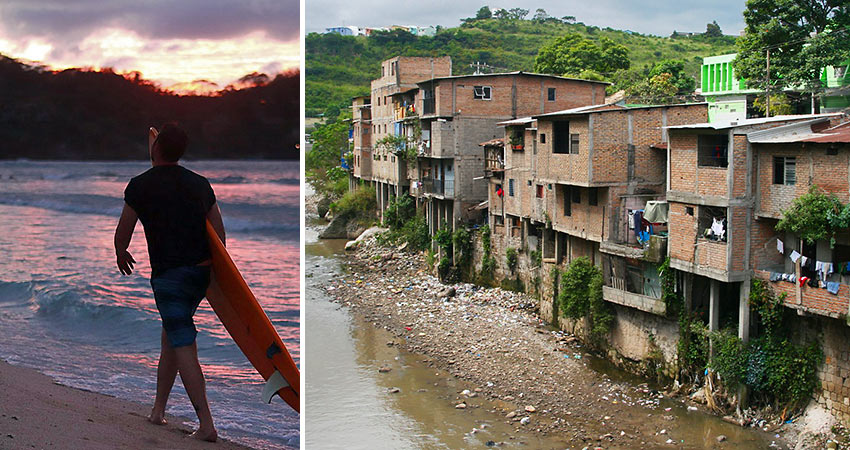
Richard Carroll — T-Boy writer:
Follow the Rules, Particularly When It’s In Your Own Book
I wrote a book “Traveling Mexico by RV” for Chronicle Books, San Francisco, and on a driving trip to Central America, seemly I cast aside everything I had written and simply ignored many of the rules and tips in the book creating a travel nightmare to remember.
With two surfboards on the luggage rack of a Volkswagen Camper, called the African Queen, we were on our way back to Southern California from Panama when arriving at a huge flow of water blocking the roadway near the Guatemala/Mexico border. I thought that I could easily drive through the water though my wife and son Carson urged me to pull over. We quickly found the Queen floating down a fast moving river sideways water rushing through the floorboards. Carson shouted, “Dad, should I pull down a surfboard?” I said, “That’s not funny Carson!” We finally became lodged on a sandbar, and all the while the chuckling Mexicans thought it was the most humorous sight ever. I could hear them, “Look what the crazy gringos are doing!”
They did help with much effort on a hot humid day to push the Queen off the sandbar, all the while staring at me with great glee, while pushing the Queen a short distance to their small village along a dirt road stopping squarely in front of a house of prostitution. The ladies came out and offered us a mattress in one of the rooms with a fan. We declined. Each morning the smiling senoritas would sit on a wall snacking and offering us hot tortillas, Carson, 17, said, “Those ladies are really pretty and so nice.” I said, “Never mind Carson
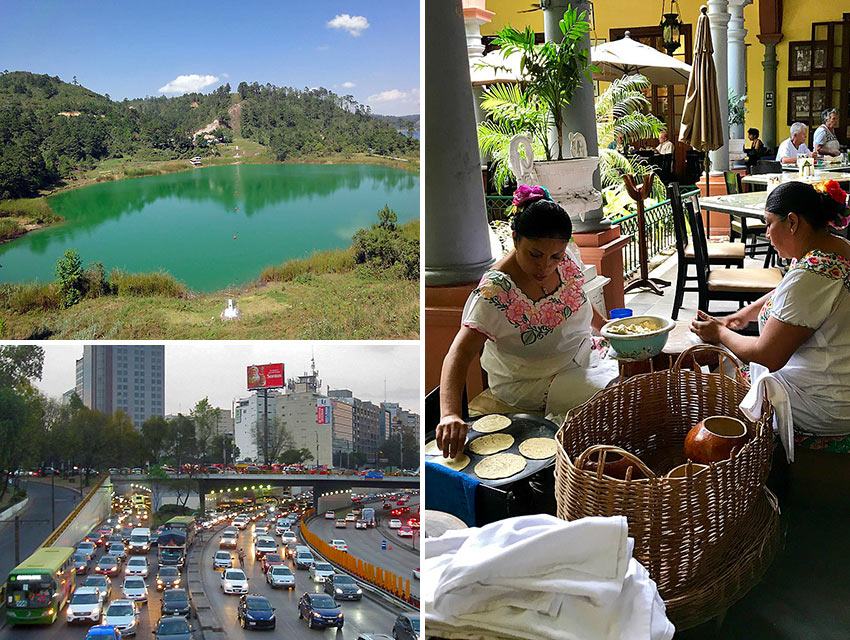
For three days we sat in front of the house along with the senoritas who were busy half the night, the Queen refusing to start. Each morning the villagers on their way to the fields would stop by and work on the Volkswagen pushing it up and down the dirt road to no avail. One morning, an older man with a large mustache who we called the Maestro, very elegantly punched a large hole in the muffler with a screwdriver thinking if the water drained out the Volkswagen might start. He stood up, bowed, and sauntered away. Throughout those three days we were invited to funerals and weddings, received baskets of fresh fruit, were friends of the senoritas, and finally on the third morning with four hefty Mexicans pushing the Volkswagen it kicked over. The wounded Queen putted out of the village on three cylinders, the villagers cheering, Carson waving goodbye to the smiling senoritas.
About a half-hour later on a lonely stretch of road we ran out of gas. For some two hours cars zoomed past us in bunches looking the other way. It was dead quiet and under a blazing hot sun and low-flying large-winged birds, suddenly a huge tanker truck pulled up behind us. The driver minus a shirt, wearing a headband, cigarette dangling, and looking like Zorba the Greek understood even before I explained that our gas tank was empty. With a dented coffee can in one hand that he was using for an ash tray he climbed to the top of the tanker and scooped out some petrol created a funnel from a piece of paper and we had gas. He never spoke, refused money, and drove away. It was like a strange vision, a happening from the heavens.
We made it home though quickly got lost in the maze of Mexico City traffic until two motorcycle cops led us to the correct highway. Then driving hundreds of miles without rear view mirrors that were stolen in Guatemala via the quickest hands in the country was a dangerous challenge. Later Carson whispered to me, “Are you going to tell anyone about the six Honduran guerrillas we picked up carrying machine guns and pistols who kept asking you in strange Spanish, ‘Do you like your president?’ I remember we dropped them off just before Tegucigalpa and they faded into the bush with six bottles of our cold water.”
It was for sure a travel nightmare but only one of numerous others driving the Queen south of the border.
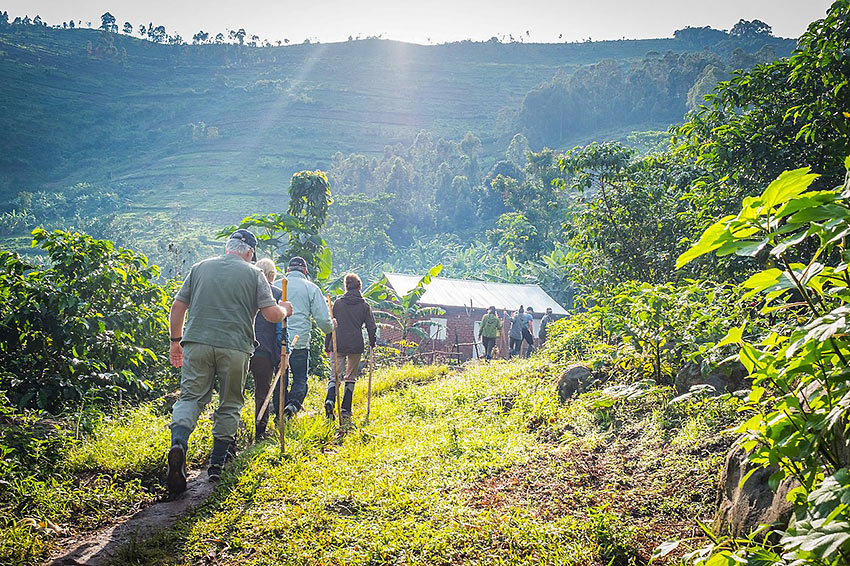
Fyllis Hockman — T-Boy writer:
The Most Difficult Trek We Had Ever Experienced.
The eight of us huddled together, warned repeatedly to stay close and keep quiet. A soft cough escaped from one of our party and the guide looked immediately askance. Coughing and sneezing were very much frowned upon. If you’re scraped by a stinging nettle, don’t even think about screaming — a usually fitting response. Sharing 98.4 percent of our DNA, the elusive mountain gorillas — whom we were seeking at the time — are very susceptible to human-borne illnesses and more gorillas die from such infectious diseases than from any other cause. We were carriers and they had to be protected from us. And this was before the pandemic!
Still, eight humans a day are allowed to visit these gentle giants, as they are known, for no longer than an hour, as we did during a recent visit to Uganda as part of an ElderTreks tour.
This is not exactly a drive-by photo op. With a vigorous (to say the least) trek of 1-7 hours, depending upon where the gorillas are that day, you have to REALLY want to see them. But even with visitation restricted to an hour, it is usually well worth the effort. But more on that later.
There are about 880 mountain gorillas in the world with almost half located in Bwindi Impenetrable Forest, a World Heritage Site clearly worthy of its name, in southwestern Uganda, an 18% increase over the last census due to increased conservation efforts, education and veterinary care. This is very good news.
The prelude to the hike is itself intimidating. Treks range from 1-7 hours according to the promotional material, with a maximum increase in elevation of 500 meters. Wear good hiking boots, don gloves for the nettles, a walking stick is mandatory, bring lots of water, don’t get closer than 25 feet — and remember these are wild animals.
Anticipation mixed closely with apprehension as every person on our tour, whether expressed aloud or not, felt “I hope I can make.” The tale I’m about to tell about my travel-writing husband Vic and myself is not the norm. The tale for the other eight members of our ElderTreks tour, from whom we were separated because of the limit of eight people to a gorilla trekking group, is the opposite extreme — also not the norm.

Boy, were we ever wrong. The trek was somewhat strenuous from the beginning, with steep climbs and slippery descents, traversing narrow ravines, but we were holding our own, feeling pretty good about ourselves. Until we entered the forest. And there was no semblance of a trail at all. The guides were trail-blazing with the help of machetes deep into the clearly “impenetrable” woods, the rocks, roots and brambles beneath our feet not even visible because of the thick underbrush. With walking stick in one hand and the porter’s in the other, I tried valiantly to move forward though at times the porter was literally dragging me up the precipitous slopes or keeping me from sliding down sheer declines, twigs and vines attacking from both sides of the non-trail, entangling my feet and arms to further impede progress in either direction. At times, I thought either my arm would be pulled off by the porter or my legs by the vines.
All the while, I couldn’t help but feel guilty for thinking to myself how little at that point I cared about the gorillas and how much I was worried about surviving the grueling trip back. I was seriously considering becoming a modern day Dian Fossey and staying with the gorillas, assuming we ever reached them, just to avoid the return trip.
I wish we could say the trip was worth it but by the time we finally dragged ourselves — or more appropriately — were dragged by the porters to the designated area where the gorillas had been, they had left. This is just not what you want to hear after what most of us on the trek agreed was the most difficult thing we had ever experienced.
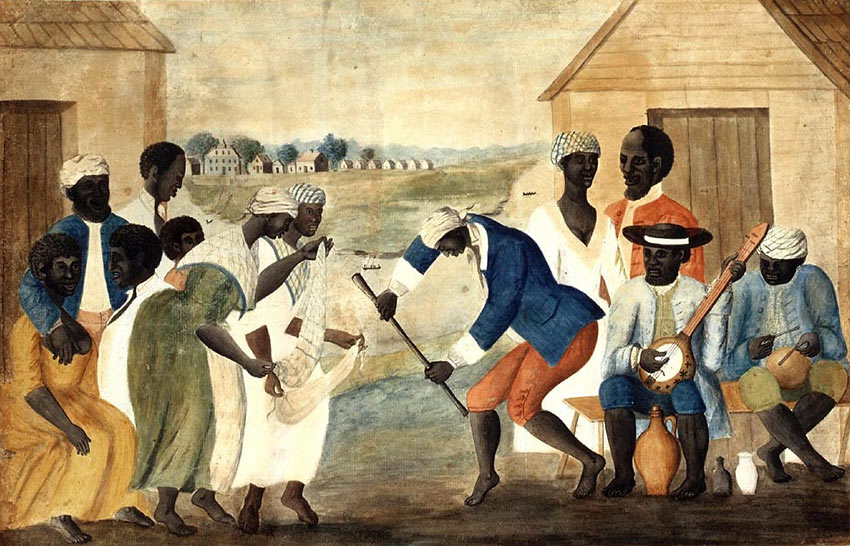
Ed Boitano — T-Boy editor:
Investigate Tour Operator Before Booking
Our little ferry graced the salt marshes of Hilton Head Island. Surrounded by a world of sea grass in South Carolina’s Low Country, we were on our way to the island of Daufuskie in search of Gullah history and culture. The ferry ride served as our introduction to our tour vendor — which I’ll refer to as XYZ. Little did I know that this very ferry ride would be the highpoint of our tour.
First, a little about the Gullah
Research told me that slave traders brought Africans from Sierra Leone to the chain of Sea Islands for their expertise in planting, harvesting and processing rice. During the 1700s, American colonists in the Southeastern U.S. realized that rice would grow well in the moist, semitropical country bordering their coastline. But the American white plantation slave owners had no experience in the cultivation of rice, so they purchased slaves with a preference for Africans from the “Rice Coast” or “Windward Coast” — the traditional rice-growing region of West Africa. The enslaved people became known as the Gullah (Gul-luh), perhaps derived from Gola, a tribe found near the border of Liberia and Sierra Leone. Daufuskie itself: translated to “pointed feather,” a name attributed to island’s earliest inhabitants, the tribes of Muskogean stock.
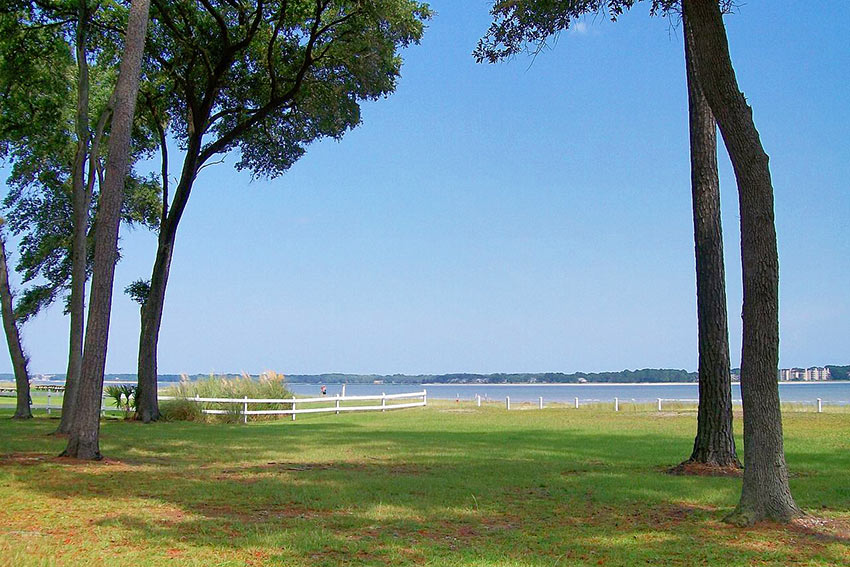
I read that when the U.S. Civil War commenced, white owners hurriedly abandoned their plantations and fled to the mainland, while some Gullah were actually unaware of the war and their eventual freedom from slavery. Due to this isolation, the Gullah were able to preserve more of their African cultural heritage than any other group of Black Americans. They spoke a unique Creole language and maintained a life similar to that of Sierra Leone. I was anxious to meet a Gullah person and hear their unique language in conversation, and, who knows, maybe even a bit of folklore.
As we exited the ferry we were met at the dock with a hostile sign: “No food Allowed,” and then were escorted by a XYZ employee to a row of golf carts by a general store. His scripted remarks included ‘”If you want any food you better get it here, this store is the only place on the island you can get it” (later we found an independent grocery in the island’s center) and “this is our BEST golf cart on the island… I know ‘cause I just rode it!”
We were happy to leave the man; and with map in-hand of historic Gullah sites, we excitedly navigated our golf cart down the dusty dirt road in search of these remarkable people. Sort of, that is, due to our cart running at half speed compared to the other golf carts. We returned it to the less-than-embarrassed man, who offered no explanation, and were given another, which broke down in ten minutes. This time, a more qualified man said we should have never have been assigned the first two carts and gave us another that actually worked.
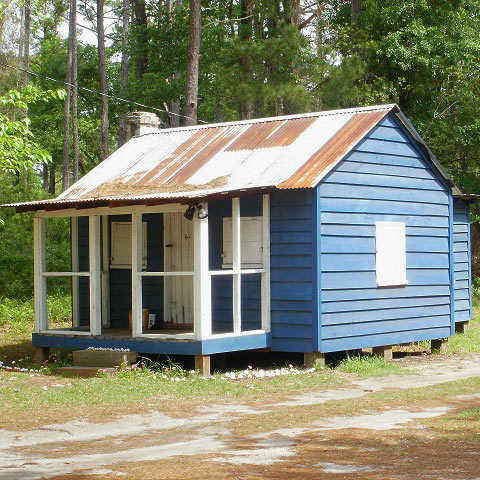
So, we were now officially off on our expedition in search of the Gullah. The map turned out be fairly accurate leading us to the First Union African Baptist Church, listed as a historical landmark; followed by Maryfield School (circa 1930), the primary school for the Gullah children. This is the school where author Pat Conroy taught in the late 1960s, later documenting his experience in the novel, The Water is Wide. Transportation only began in 1950, so the children must have had a long walk in the woods. The small Billie Burn Historical Museum was next on our agenda; with Ms. Burn considered the first true Daufuskie historian, having documented life on the island’s past in her book, An Island Named Daufuskie. The early afternoon closed after quick looks at the Mary Field Cemetery, the largest Gullah cemetery on the island, and empty ageing homes. All very interesting, but, no Gullah. Later, at the other independent store, I asked the manager, is there any place where can I actually meet one of these fascinating people. His thoughtful reply was true and educational; in fact, we learned more from him than we did with any XYZ employee. It went something like this: The Gullah have long been gone. You missed them by a couple generations. Occasionally an older person will return to the island to see their ancestral home. But… wait a sec… someone told me that right now there’s one Gullah descendent doing just that right now.
But where, I asked?
I was given complicated directions, before realizing that racing over to the woman’s private home would clearly be an invasion of her privacy. Our quest clearly needed to be tempered.
As we returned to the petite ferry it was obvious that we had been misled and even lied to by XYZ. Nevertheless, we were happy to see and learn all we did. But, were still annoyed that we had been taken advantage of, and wondered why such a company could even exist. It suddenly occurred to me that South Carolina is one of the least regulated states in the U.S., a state where the establishment of forming workers’ unions was once illegal. Curiously, the Sea Islands were the first place in the South where slaves were freed. It made no sense to my Yankee mindset.
Though it might feel otherwise, this short piece was not written as a slight or act of vengeance against any XYZ owner or employee — if fact, I never mentioned a single name — but the experience did serve as a life lesson; never book a tour with a vendor until you’ve thoroughly, independently, researched them and the specific tour. If not, there is a chance you might be disappointed. I noticed online that a tourist had commented that the island was one big tourist trap. Well, I thought, it depends on a person’s interests and perspective, but found most tourists were there for rest, relaxation and a lot of drinking. In conversation with others on the ferry ride back, it became clear not one of them had even a hint about the existence, let alone the culture, of these historic people, the people simply known as the Gullah.
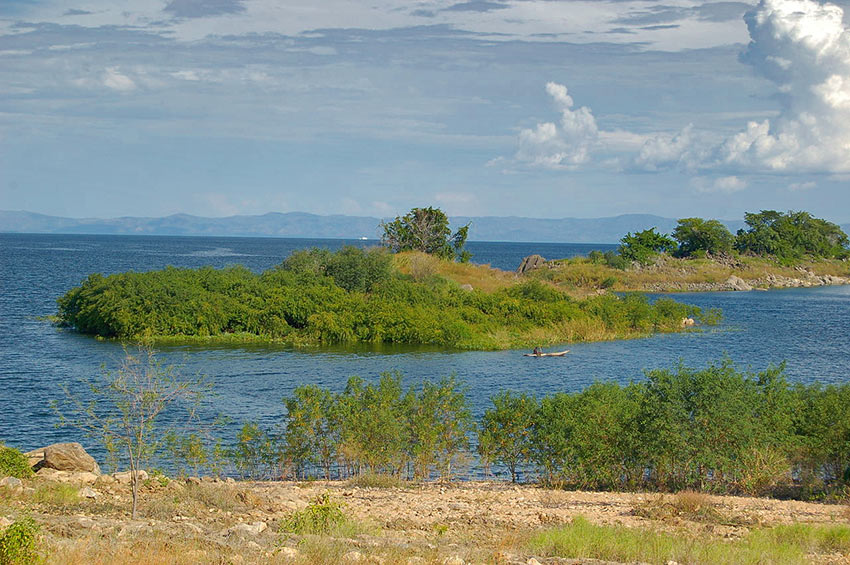
Susan Breslow — T-Boy writer:
Africa: Don’t Tip the Canoe
It frightened me to go to Africa; so faraway, so different, so wild. Yet I was even more curious than I was anxious — to a point.
Tony, my outdoors-loving companion, and I were brought by motorboat to Water Wilderness, a flotilla of ramshackle houseboats on Lake Kariba in Zimbabwe. We were deposited at the main lodge, which was basically a large raft with a roof. There a guide met us. He was a tall man wearing khaki shorts that showed off bronzed legs covered with blonde hairs. A leather bandolier filled with large bullets crisscrossed his torso. He told us about the area’s wildlife and talked about the conundrum he would face if an endangered rhino charged and he had to decide in a split second whether to shoot him to save himself.
Tony, tired of only seeing animals from the vantage of a Land Rover, expressed a desire to hike. The guide motioned to the canoes tethered to the raft. “Take one, and pick a houseboat,” he said. “Try not to tip over,” he added. “There are hippos in the water and crocodiles by the shore. In the morning I’ll take you on a hike.”
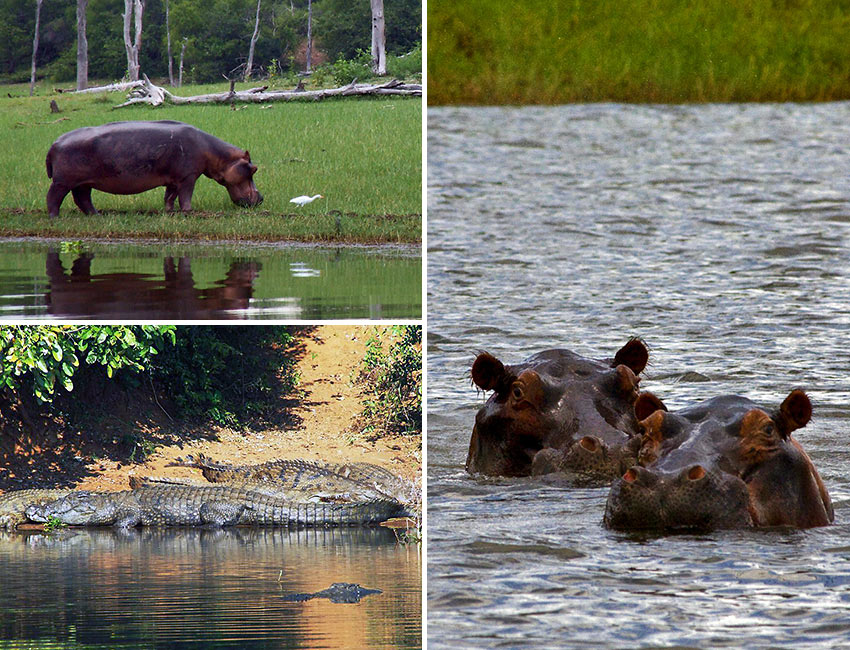
I hardly slept, my dreams full of toothy crocodiles straddling hippos to slither onto our houseboat. The next morning the guide called for us in a rowboat, and this time he had a long gun slung over his shoulder in addition to the bandoliers. Terror consumed me. What if the boat tipped over and we were breakfast for hippos? What if I was breakfast for a tse-tse fly? What if after we docked on the far shore an animal charged? What if I couldn’t keep up with the hikers? What if there were deadly snakes in the tall grass? I made it into the rowboat — and burst into tears.
“Do you want to go back to the houseboat?” the guide asked kindly. I nodded. He docked the boat on the far shore, and Tony jumped out. He handled him the rifle, then turned the boat back toward my haven. Tears drying, I was embarrassed. “Don’t be,” said my bronzed hero. “If they put me in the middle of Grand Central Station, I’d have the same reaction.”
A potential nightmare averted, I spent the rest of the day on the deck of my houseboat, watching Cape buffalo meandering on the hills beyond. Even they knew not to go in the water.
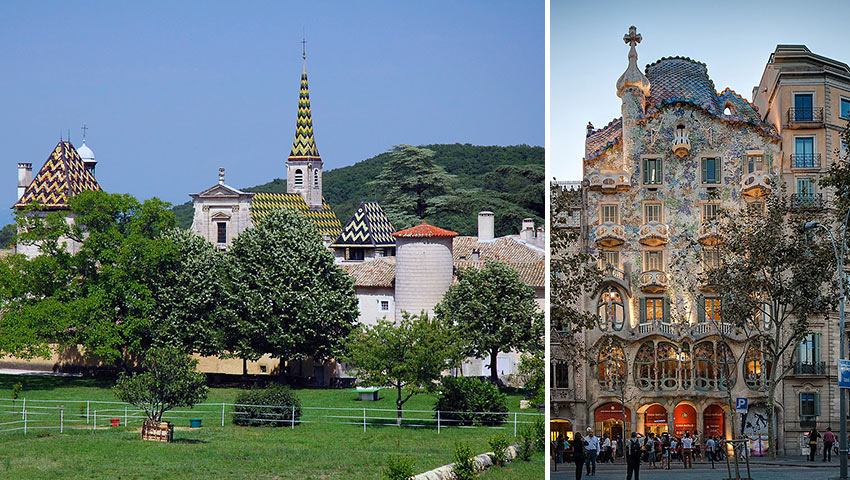
Stephen Brewer — T-Boy editor:
All’s Well That Ends Well
A flame shot across my hotel room when I switched on the air conditioner. Then the draperies caught on fire. I smothered the blaze and called the front desk. I’m not sure what the man who answered the phone thought I was telling him, but he arrived with an ice bucket. He sniffed the acrid smoke, pointed to the blackened remains of the air conditioner, and declared the room a catástrofe. That much I understood.
The trip was sure getting off to a rocky start. The plan was to pick up a car in Barcelona and drive across the Pyrenees to a rental house in Languedoc, in southwestern France. Looking back after all these years I remember snowcapped mountains, sun-drenched vineyards, villages of golden stone, and cassoulet… but I jump ahead of myself.
The next morning, in the windowless garret that the clerk said was his very last room, I was awakened by a disturbing revelation. I had left the prepaid voucher for my rental car in the bedside table of the other room. The same fellow was on duty behind the desk, and he let out a dramatic sigh of distress upon seeing me. I asked him to let me into my old room. “Ocupada,” he grumbled. Occupied? How had he explained the charred walls to the new guests? As it turned out, they probably hadn’t noticed. In answer to my knock a naked man flung open the door. He had a wine bottle in one hand and said “cheers, mate” in an Australian accent. A woman, barely covered by a sheet, gave me a friendly wave from the bed. I explained my mission and grabbed the precious voucher. I thanked them and the man asked me the time. “Just after nine,” I said, and he asked if I meant evening or morning.
With a spring in my step I walked down the Ramblas toward the car agency. Even this early in the day the cafes were full of chattering patrons. Parakeets chirped away from cages that hung from tree branches. I turned into the small street where the agency was located. The windows were dark, and the place was locked up tight. It would remain so for the next three days, according to a sign in the window, for the feast of some saint with whom I was unfamiliar, though he certainly seemed to have the miraculous power to ruin my vacation. In those pre-computer days, you couldn’t just cancel a reservation and make another one online. I was stranded until I could retrieve the car. On the bright side, nothing was stopping me from moving to the nicer-looking hotel across the street. I didn’t realize the two establishments were under the same management until I came back from dinner that evening. The same clerk was behind the desk. He glared at me. I gave him my steeliest stare. “Try not to burn this place down, too” he growled in broken English, then added under his breath “tonto Americano” (American fool).
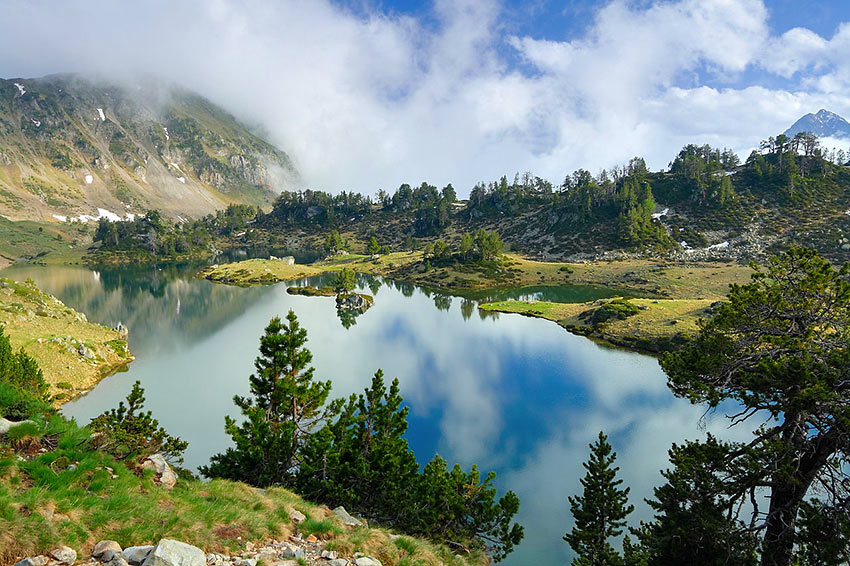
I got out of Barcelona without further incident, but I wish I could report that the rest of the trip was smooth sailing. I had just climbed out of the car to stretch my legs at the top of the Col du Portalet, one of the highest and most spectacular of the passes across the Pyrenees, when I heard the low rumbling for the first time. Thunder, I thought, but the sky was cloudless and a startling blue. Ah, farm machinery, no doubt, but nothing grew up here above the tree line. Or wait, maybe it was one of those quaint horns I’d read about, that shepherds use to communicate with one another across the heights? Or perhaps the grunts of a chamois? Then I realized that the noise was coming from my car.
The garagiste in Pau buried his head under the hood, exclaimed several “Mon Dieus,” and emerged to inform me the car was a catastrophe (that word again). The solution was simple: replace the engine. I declined.
By the time I had settled into my village the car would start only intermittently. My very nice neighbor Dieter, a summertime resident from Heidelberg, showed me how to pop start the car. I soon became quite adept at the technique, shifting in and out of second gear as I glided down an incline through the vineyards until the engine turned over. In the coming weeks I also learned the term for flat tire, pneu coupe, and I had two occasions to use the phrase. Then there was the water that kept pooling on the kitchen floor. I could not locate a leak, nor could I find Jean-Claude, the gardien who was supposed to look after the property. He was in Lyons on business, or so the snippy woman who answered his phone told me. Then he was in Nimes, visiting a sick aunt, then in Toulouse, at a fair. The peripatetic Jean-Claude never did make an appearance in my kitchen. I purchased a mop with a fancy wring mechanism. Mopping and pop-starting became parts of my daily routine. I mapped out excursions with consideration for how much mopping I would have to do when I returned. I parked only on downgrades.
On my way back to Barcelona I stopped for a few nights in Cadaques, a stunningly white seaside village at the top of the Costa Brava. My terrace overlooked a blue swath of the Mediterranean, framed by heavenly scented pines. The Languedoc reds I’d brought with me were delicious. My mopping days were behind me. Soon I could turn the problematic car over to the agency. According to my calculations, I could get all the way back to Barcelona on just one pop start. As Shakespeare said “all’s well that ends well,” and the more wine I drank, the more reassuring I found it to think that in travel as in life, the good things are what remain with us.
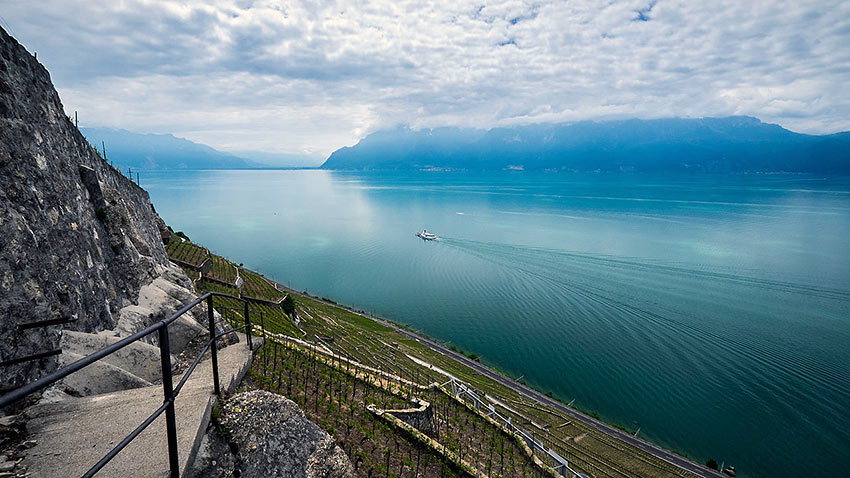
Ringo Boitano — T-Boy writer:
A Nightmare Train Experience With A Happy Ending
My photographer and I had just finished a stunning seven-day tour of Switzerland’s Lucerne and the Lake Geneva region.
Our final night was at a Zürich hotel, walking distance to the train station, which would depart to the Zürich airport, only one stop away. My photographer was booked on an early before dawn flight, leaving me with an extra hour of sleep and two over-packed suitcases and a backpack. No problem for me, I smirked. But the next early morning after she had departed, I found it still too early in the morning and my baggage heavy and awkward to carry. Nevertheless, it was the cross I had to carry, and slowly and methodically made it to the trainstation, drenched in sweat and gasping for breath. Fortunately, on my turtle-like walk there was not a soul in sight, sparing me the embarrassment of the macho Yank, barely able to stand up.
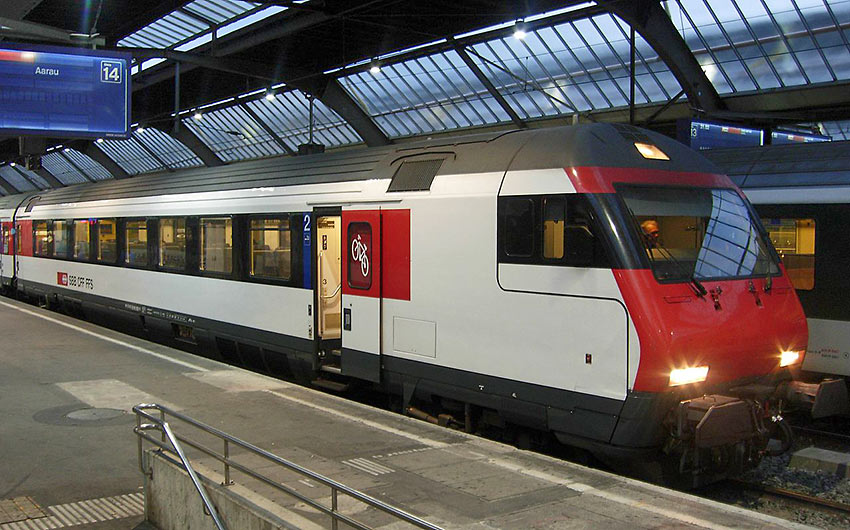
At the train station there were many Swiss kids and a few older, still partying from the night before. In front of me were a line of railroad trains. Of course, the world knows that Switzerland has a dense network of railways with more than 2600 stations and stops, which are as efficient as an Olympic game clock
As I surveyed the trains, I was unable to find one with the magical words, Zürich Airport. The railway representatives were a little too far away for me to bother to ask, so I stupidly thought, well, Zürich Airport is one stop away and any train going in that direction will make a stop. I climbed aboard the nearest train and took a comfortable seat. As the train ride commenced, I noticed we were covering a lot of kilometers, more than I had thought for a quick ride to the airport. A railway ticket collector appeared and carefully punched everyone’s ticket. When it came to mine, he took pause. In perfect English he asked, “Where do you think you are going?” “Zürich Airport,” I replied. The gentleman shook his head, “There is no stop at the airport. This is a direct ride to Lugano.” Before I could reply, he took my ticket and left me with the words, wait here. My five-minute wait felt like I was trapped in a Hitchcock film before the man returned and informed me that the train will make an emergency stop at a platform where another train will be waiting to transport me to the airport. What! How can this be on the world’s most efficient railway system, a railway system that was so efficient as an Olympic game clock. Wouldn’t this interfere with their carefully orchestrate time table? But it was true. The train actually stopped, and I struggled over to the desolate, opposite platform with my load, where the train to Zürich Airport and its conductor was actually waiting for me. The conductor words were polite, but commanding. “Wait here! Do Not Go Anywhere! We will tell you when to get off to the airport.” And that’s what exactly happened; 15 minutes later I was standing in the check-in line at the Zürich Airport. Is there a morale or even travel tip from this? No, not really; just don’t be a clueless American and always take the time to ask questions. You’ll find many people are happy to help, particularly in Switzerland.
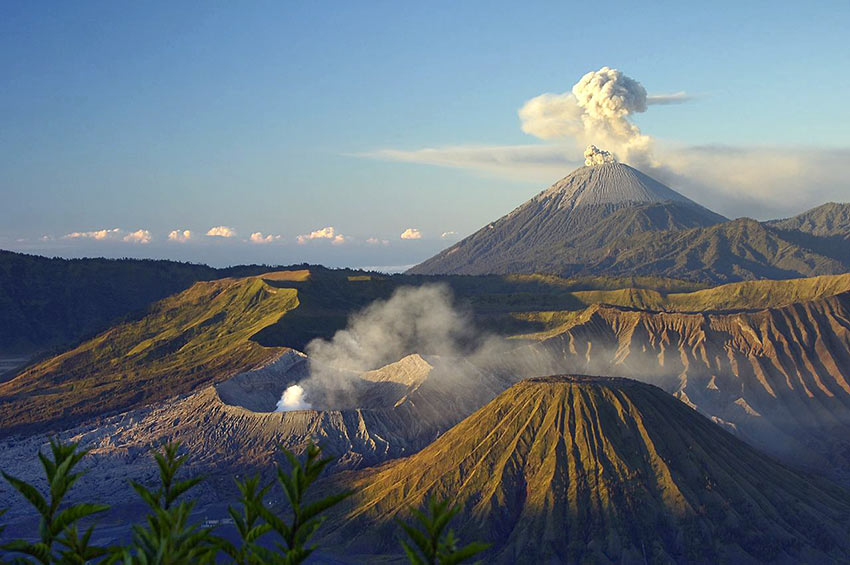
Richard Carroll — T-Boy writer:
Press Trip Travel Nightmares
On a media trip to Indonesia there was writer with a drinking problem who by evening time was slurring his words and unable to communicate. It was a Travel Nightmare when sitting at the dining table and it was his turn to speak to the hosts. A media cruise to South America a writer hit on a gorgeous lady sitting at a bar. He didn’t realize that she was on her honeymoon and quickly her husband appeared and there were blows. At the next port of call he was kicked off the cruise and left on the dock with his luggage. Later he sent the public relations lady roses and she returned them. Both of these were extremely embarrassing and awkward. I could write a long short story about Travel Nightmares, as could most active travel writers.
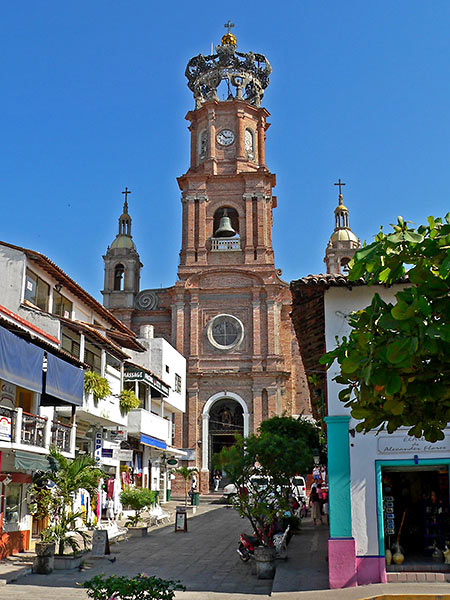
A press trip to Switzerland an editor from Sunset Magazine was always late. The Swiss PR leader instructed us that we would meet at a certain place in the heart of the village at 4 p.m. and please don’t be late. The van can only be in this area for a few minutes and it’s a huge ticket if we overstay. We were all back on the van minutes before 4 p.m. except for the Sunset Magazine editor. We looked down the sidewalk and there he was sauntering along looking in windows, as a policeman appeared at the window of the van. The PR guy lost his temper and shouted, “I’m not a damn baby sitter for travel writers and I’m tired waiting for an airhead!” He slammed the door of the van and we left him in the village. Our next stop was miles further in another Swiss mountain village where we would spend the night. Hours later about halfway through a marvelous dinner here comes Sunset Magazine straggling in through the door. The PR leader stood up and said, “Here’s the key to your room,” then sat down at the festive table. It was another awkward Travel Nightmare. He did go straight to his room and was never late again. Throughout the remainder of the trip the PR leader ignored him.
There was a media trip when two Los Angeles women were invited and the New York PR lady didn’t realize they despised each other, it was a week-long Travel Nightmare. In Puerto Vallarta on a press trip a female was sent home because she was complaining morning, noon and night. The PR lady said to her in front of the group, “We spent a great deal of money on this trip and you’re ruining it. We have booked a flight for you at 6 p.m. and possibly we can work together in the future?”
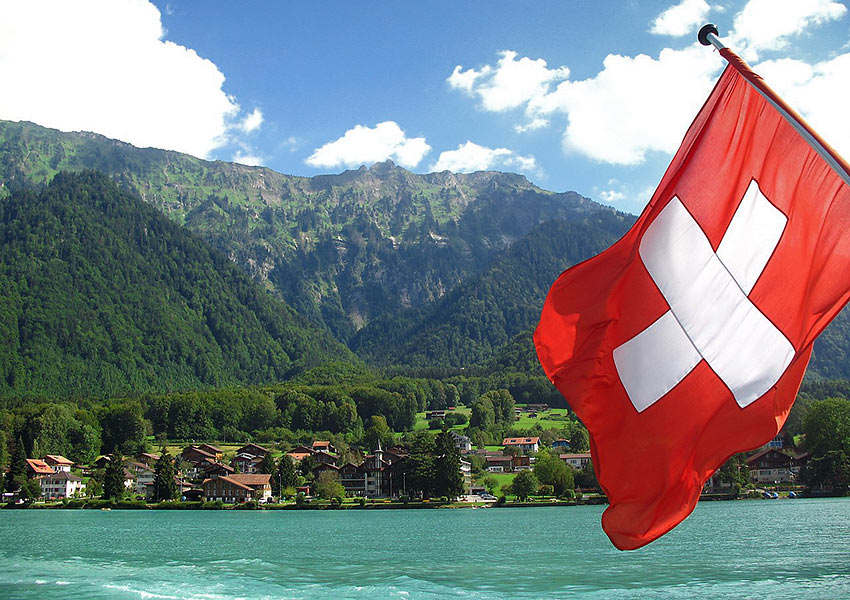
On a press trip to New York City with some excellent writers, one writer was allowed to bring along his new girlfriend. The second day he arrived at breakfast with a black eye, his glasses shattered and a huge bump on his forehead. It looked as if she had whacked him with both hands. She arrived at breakfast without a mark sitting at the table far from him. They sent her back to Los Angeles that afternoon and helped the writer to find a new set of glasses.
A trip to Asia a writer disappeared on the first night and didn’t reappear till it was time to depart. The PR firm banned him forever and spread the word to other PR firms. This writer has faded from the world of travel.
On a cruise to Hong Kong a writer from NYC attempted to commit suicide. Somehow, he stowed away on the ship and we spent the entire cruise searching for him. Finally, the staff entered his cabin for the 10th time. He was on his bed staring at the ceiling and not speaking. He told us that he was depressed and only kidding about suicide. That seemed to be the end of this writing career, and the last time I checked he’s still alive and healthy living in Chicago.
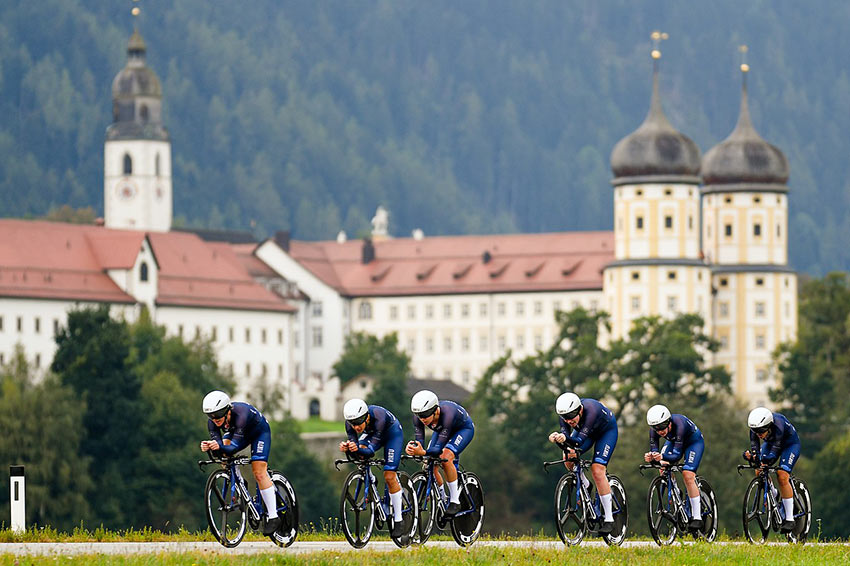
A cycling trip to Austria the PR firm was adamant that we need to be in good shape, not top physical shape but able to cycle a six mile segment to a waiting bus. It was a hot day and after 20 minutes or so a lady from Philadelphia was lagging far behind. I stopped and talked to her. She was not in good shape, sweating profusely, and refusing to go any further. The PR cycle leader walked her back to the starting village and then had to find transportation at great expense for a one hour trip over a mountain to connect with the media group. Everyone was worried about her and it sent the focused travel edge flying. She said, “I didn’t think it would be this hard.” She remained on the bus for the remainder of the cycling sessions. The European PR firm was not happy, and one of the leaders said to me privately, “Do you Americans know how to read?”
Hemingway wrote, “If you want to stay married to your wife or sweetheart never travel with her.” We have witnessed a number of couples who have had travel stress breakdowns with shouting matches, leaving overloaded luggage in hotels and parking lots and wishing they had never left home.
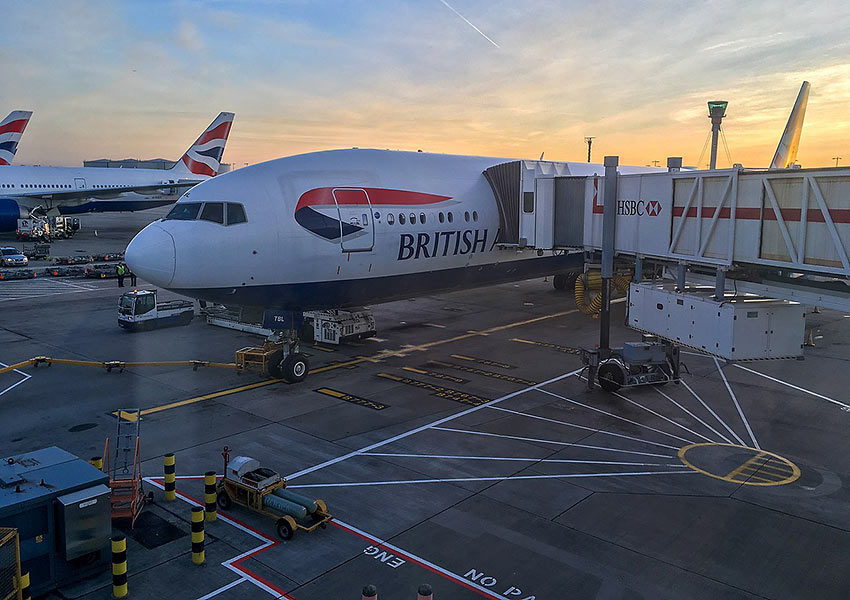
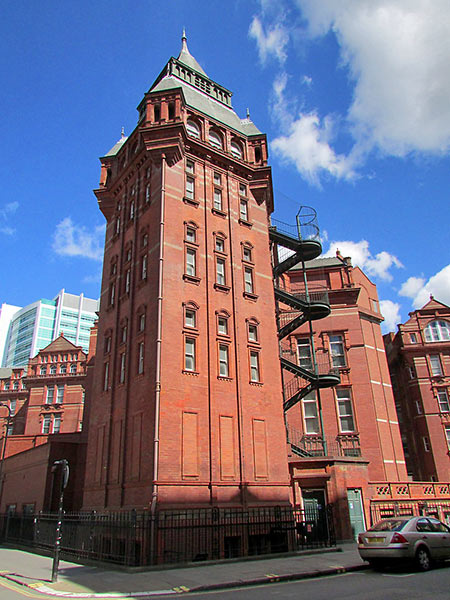
Weave Cleveland — Travel Guys cinematographer
Circumstances Beyond Your Control
The Greek mob, set up by the Russians, roofied, robbed, a smashed sliding glass door at a Best Western gashing my leg right open, a maid in terror watching me bleed sitting at the edge of a bathtub with the water running as I do my own surgery, me tearing my own clothes into strips to use as tourniquet’s, a restaurant owner punching me because I didn’t choose his restaurant, British Airways leaving my luggage in the rain leaving me without anything for two and four days respectively, more than one piece of luggage, think colours running into other clothes, blues into whites, etc. … and explaining why your suitcase now weighs 80 lbs. instead of 40, Heathrow Board of Health refusing me first aid and telling me to go to a hospital in London when all I wanted was to please get back home — and that’s just Europe.
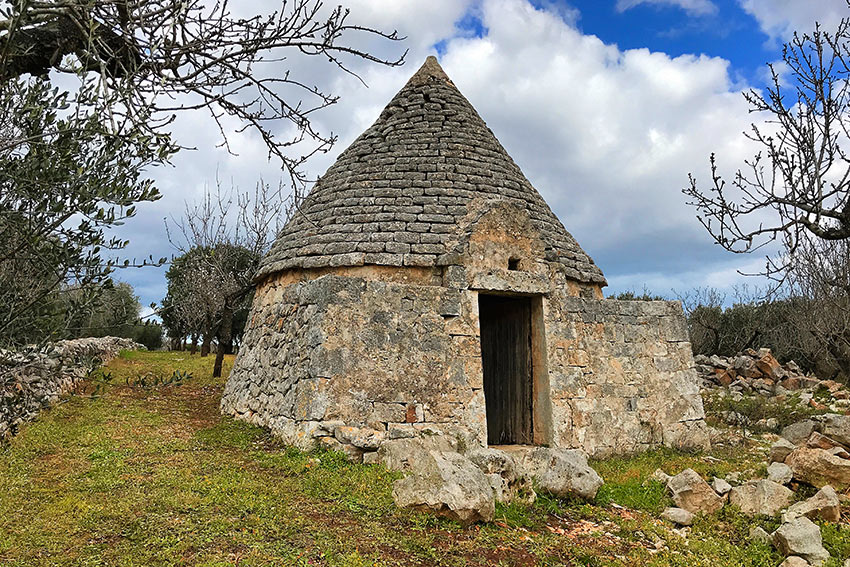
Tom Weber — T-Boy writer:
Behind Enemy Lines
In a previous life, the one that provided me with a bi-monthly paycheck, I traveled a lot. The job afforded me countless suitcases full of opportunities while in the service of my government. That’s how I managed to get the lion’s share of entry-exit stamps and visas in my well-worn passports.
Colleagues were envious, but not jealous, that I was able to “change the air” and leave the office environment on a pretty regular basis for long stretches of time.
Whenever I’d pack up and head for foreign shores, I’d always tell my officemates, tongue-in-cheek, that I was going “behind enemy lines.” Truth be told, my pronouncement really wasn’t that far off.
The different languages, cultures, customs, traditions, politics, cuisine, scenery, just everyday life in general, in most of the places that I’ve visited, were odd and foreign to me at first, but after numerous return visits to some, I became more relaxed, more comfortable, and more at ease with my temporary abodes abroad.
As the old saying goes, “When in Rome, do as the Romans do.”
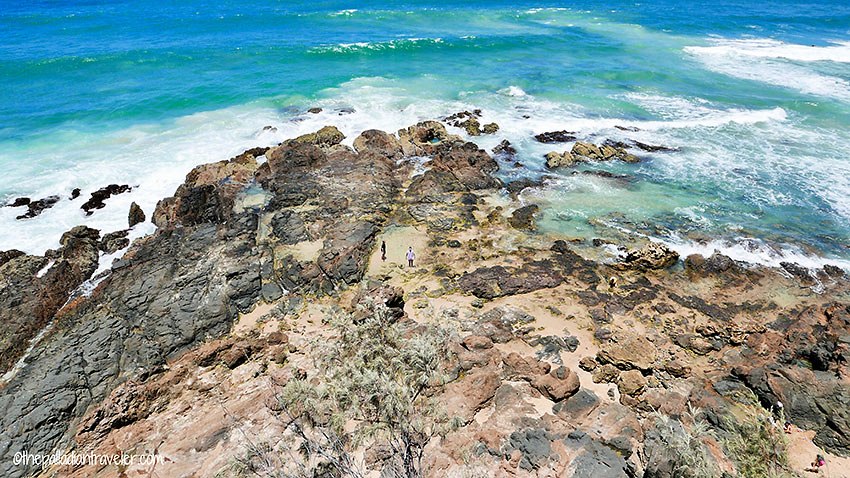
I learned early on that whenever I traveled outside my comfort zone, the best way to approach it was by doing my utmost to adapt to the new culture for as long as I was in “their” fair city, village or hamlet. Sample and soak in as much of your hosts’ way of life as you can. And whatever you do, do not go around comparing your way of life back home with theirs. Just leave your personal baggage behind. Don’t let it clutter or fog up the new-found moment or experience. In other words, don’t rain on your own parade.
Being “behind enemy lines” can be, and should be, a lot of fun. Don’t blame misplaced luggage, flight delays, bad weather, etc. on the place you’re visiting. These are simply the bumps and bruises of the foreign travel experience.
In the end, it all works out and makes for interesting stories to share with your office mates when you return home. Remember, they’re envious that you got to go. So, embellish a bit.
I’m probably preaching to the choir with most of you fellow, well-seasoned “road warriors,” but it’s always good to remind ourselves that when we step off the plane, train or boat, that “we’re not in Kansas anymore.”
From the Panama Canal to the Great Wall of China, from the bush of South Africa to a mud hut in the Haute Guinea, I’ve done my fair share of being placed, and placing myself, “behind enemy lines” and always made it back safe and sound. And, most importantly, I returned home more enlightened and fulfilled than I was before I left.
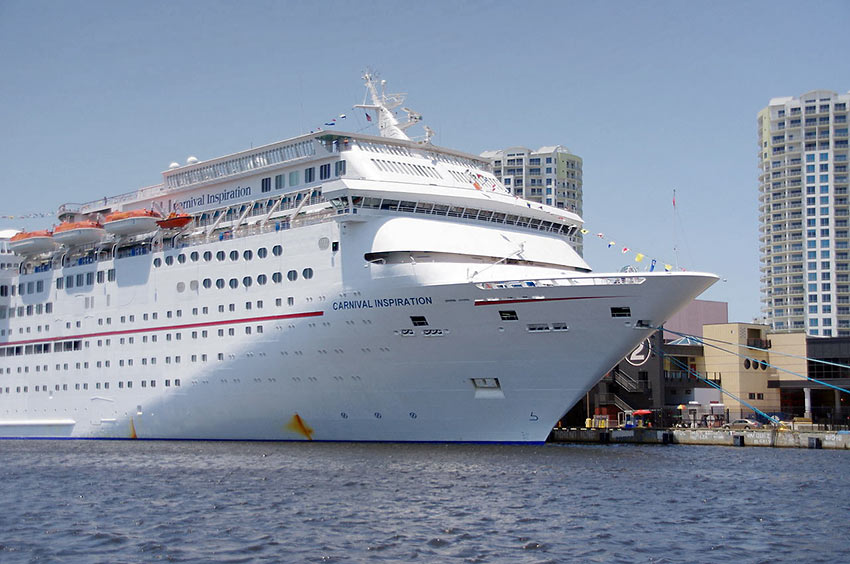
James Boitano — T-Boy writer
A Travel Nightmare All In Your Head
When it involves your family, a Travel Nightmare can be all in your head.
Some years ago, my parents and siblings and I all took a Carnival Cruise to the Western Caribbean out of Tampa. It was a lovely week-long visit of the Cayman Islands, the Yucatan and Belize.
The cruise ended Sunday morning with a flight home at noon and the eventual return to work on Monday. Typically, Sunday morning was sad to see the trip over, but then it turned stressful. Very stressful. Due to unexpected fog, the ship couldn’t dock for hours until after its scheduled arrival. Our noon flight was now much too early. We spent so many anxious hours, first stressing about when we could get off the ship and how we’d catch our flight, and then rushing to the airport. When they finally let us off the ship, we had only about an hour till our flight. We scrambled for all our might to make it to the airport, only to arrive 15 minutes too late to catch our flight home to Seattle. I can still remember how stressed out we were over this ‘nightmare’. My mother even abandoned a suitcase when we couldn’t find it at the base of the ship when we disembarked.
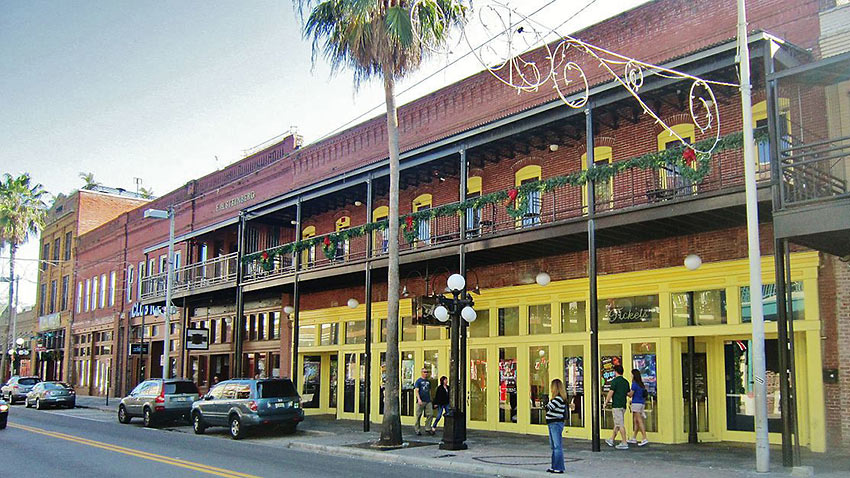
But why in the world did we work ourselves up into such a frenzy? For in the end, we got a flight home the next morning and had a lovely last day together as a family around the pool of a cheap motel somewhere in town. It turned out to be a blessing to have an extra day together as a family to extend our vacation. The nightmare was all in our heads.
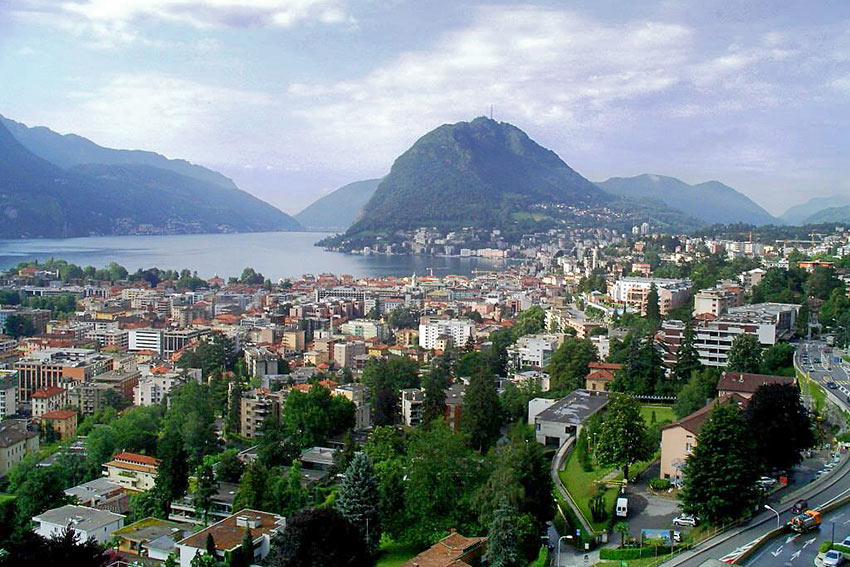
Brom Wikstrom — T-Boy writer and mouth painter:
Impossible to Anticipate Conditions
Any travel nightmare I’ve had revolves around the impossible to anticipate conditions that also make for some of the most satisfying aspects of travel. In Lugano, Switzerland, we spent an afternoon, seated in a bike repair shop, while ingenious workers improvised a fix to my wheelchair, shortening spokes they had to accommodate my broken wheels. Their pride at correcting my dilemma was a joy to behold and we were sent on our way with smiles.
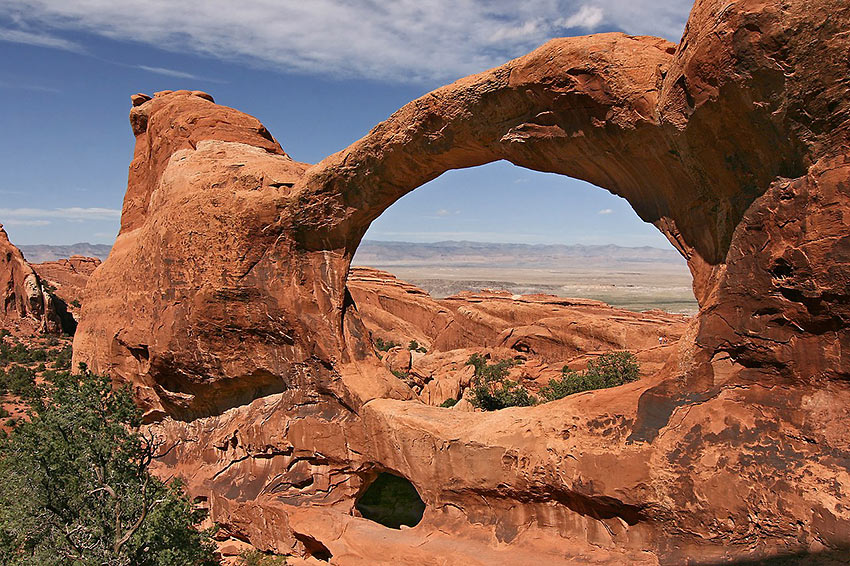
On another occasion, in Arches National Park, we had been struggling up a steep trail that had been declared wheelchair accessible but wasn’t very. Just at the point where we had to decide whether to just stop and enjoy what we’d done or return to a simpler trail below, a burly guy named Bruce came along to offer an assist. In no time, we had not only ascended to the top of the trail, but he stuck with us for the entire loop trail. By the end of the day, we’d acquired a good friend.
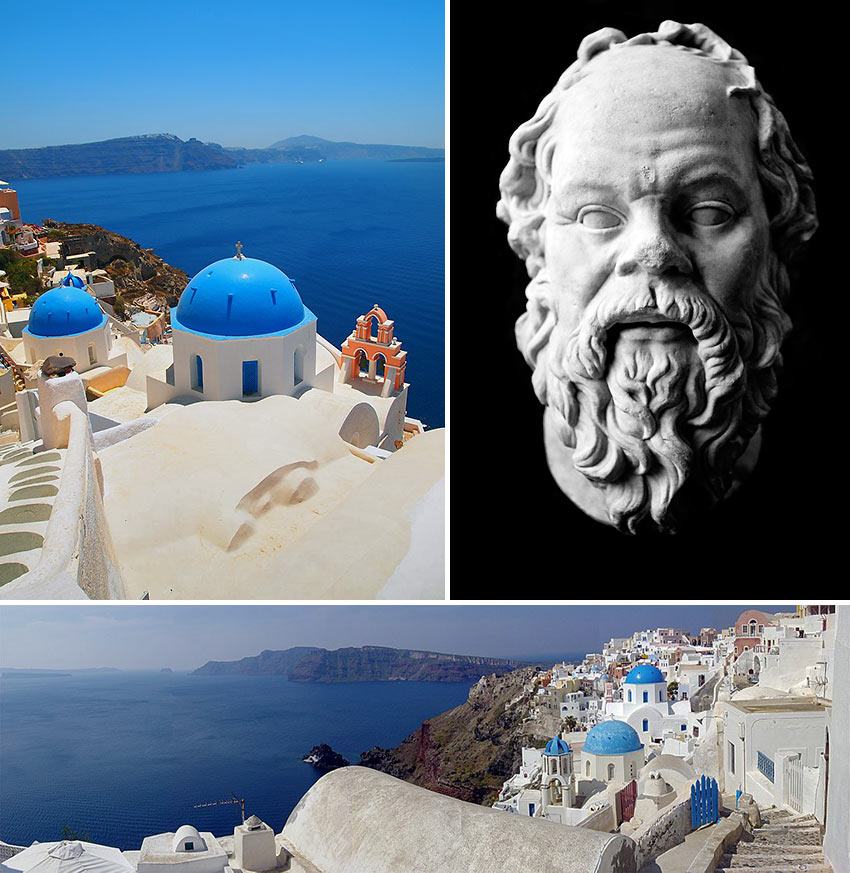
Tammy Skinner — T-Boy writer
A Hellenic Promise
There are many nuances to being a woman — most of them fabulous but some of them not so much. One of them being the seemingly invisible magnetic sign when traveling that seems to scream VULNERABLE VICTIM. Luckily, I have radar which senses movement of possible predators and over the years of traveling have developed an intricate system to ward them off. I was 21 traveling to Brindisi, Italy by train coming from Paris. My traveling companion (also female) and I were excited to travel to Greece for the first time and our plan was to get to Brindisi and stay up all night then take the early morning ferry to Patras. We befriended a kind young man on the train who was American and, on his way, to visit relatives. Out of concern and respect, he decided he would stay with us once we got to Brindisi in order to protect us from any of the street kids. All was well until we made some “new friends” who followed us around and offered to keep us company as well. Our American friend played dumb pretending he didn’t speak their language and, in the meantime, overheard their plot to kidnap my companion and I by taking us in a boat and pretending to take us 3 but then leaving our “American” friend behind.
Since I knew of this plan ahead of time and had some theater experience under my belt, I decided to act quick. It was around 5am when they took us to the dock (not far from where we would have been actually leaving for Patras only 2 hours later) …my companion and I locked eyes as we approached the boat and off in the distance I saw a group of people who were gathering to already start their wait for the arrival of the ferry. I grabbed her by the hand careful to not show fear to our kidnappers nor draw attention to them in any way that would make them angry and I turned to her and shouted “Look!! It’s Gary and Dennis!! They met us here like they said they would. Hi guys!!!!!” Grabbing her, we ran as fast as we could towards that group all the while shouting our greetings. We were lucky. We got away. That ferry ride to Greece was hotter than hot. We were sweaty, the air was humid and life had never felt sweeter. My memories of Greece are filled with wonder as I recall the beautiful beaches of Santorini, the ruins in Athens, the mouth-watering gyros in Patras and the late nights we spent dancing in Corfu. Life is sweet and is to be savored. Yet the Greek philosopher, Socrates, summed it all when he said “Nature has given us two ears, two eyes, and but one tongue-to the end that we should hear and see more than we speak.” The lesson of my travel nightmare was no doubt doubled as well; to be always aware of your surroundings (remaining vigilant and hyper attuned) and appreciating the beauty in the environment and people you encounter along the way.
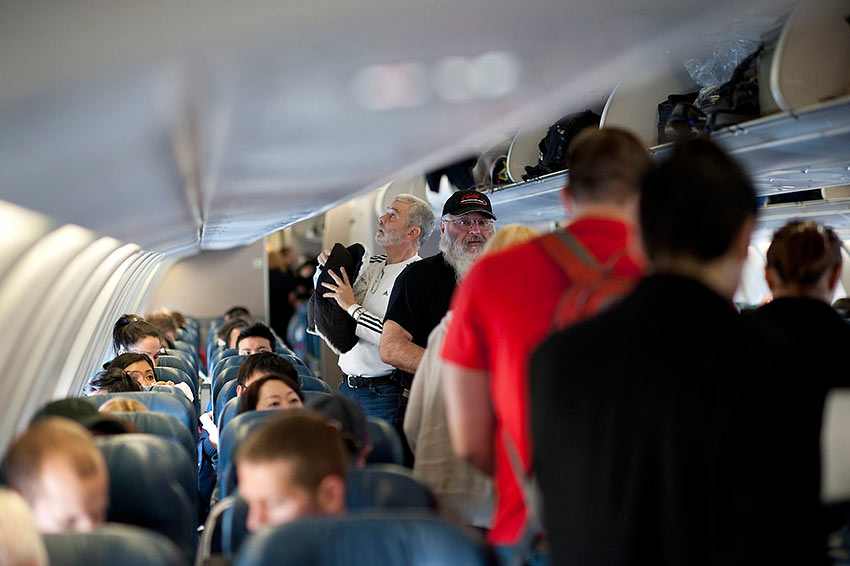
Bill Cartmel Maroldo — Television personality and broadcaster:
Be Prepared for the Worst
For the most part, travel is a double-edge sword. I love being in a new place and exploring the highlights – whether it be a village, city, or country. But for me, every vacation has its travel nightmare and it usually comes at both ends of the flight. I guess it would be cliché to say “I hate flying,” and so instead I will say I despise it.
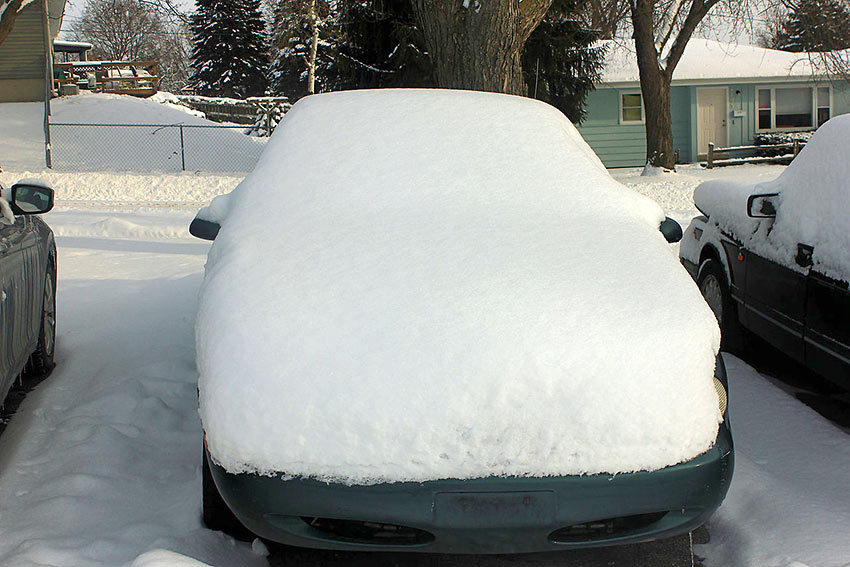
From the park and ride (think of coming back and clearing off your car after a snowstorm); to arriving at the airport (they tell you to come early, but then you sit for a couple of hours next to someone talking loudly on their cell phone); to checking in (trying to relearn the “time saving” kiosks with instructions that change with each trip, and worrying your suitcase is 51 lbs.); to finding your gate (which just changed and is now at the other end of the airport); to boarding (feeling like I’m in line for a Rolling Stones concert); to finding your seat (which someone else is already sitting in, and the overhead storage is already full); to take off (the pilot telling us we’re backed up behind a few dozen other planes, but it won’t be long); to landing (for the moment it almost feels like it’s over, but it’s not); to disembarking (uh oh, my connection is taking off in a few minutes and they still haven’t opened the door); to retrieving the luggage (ok, I realize someone has to have the suitcase which gets loaded last onto the belt). Oh boy! Now I can look forward to finding the car rental and explaining why I don’t need insurance, and then figuring out how to get on the right highway since my GPS won’t work in the parking garage. But at last the vacation has begun, the hyperventilating has subsided, and I remember why it’s all worth it.
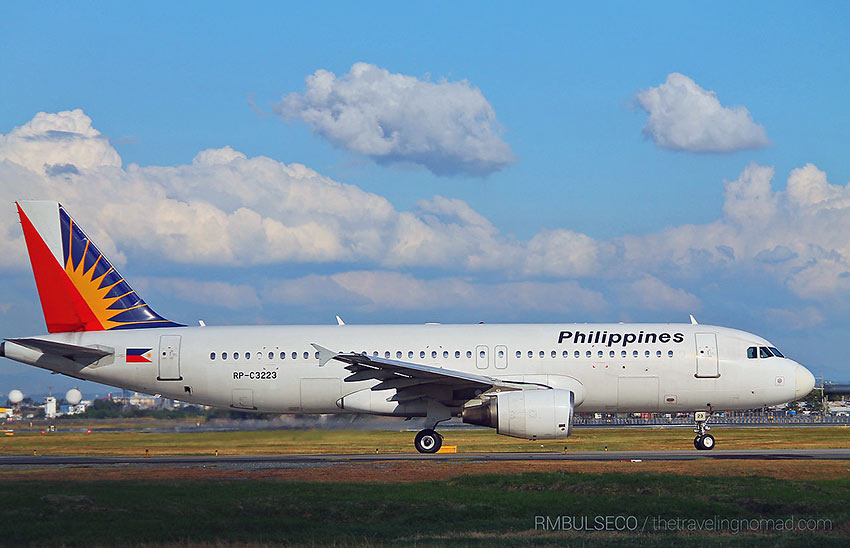
Raoul Pascual — Webmaster, illustrator and T-Boy writer:
The Crooks of Philippine Airlines
I will never recommend Philippine Airlines (PAL).
It is the flagship airlines of the Philippines. There are 3 other local competitors that fly people within the country, but it is the only international airline that flies straight from Manila to the rest of the world. Other international flights have a stop-over. Essentially, PAL is a subtle monopoly. This is my experience with the branch in Cagayan (Southern Philippines).
The air crew is great, but the ground crew is like a car salesman. They know they have you under their command, so they gauge your desperation and dangle ridiculous prices that seem to be plucked from thin air. It takes them forever to analyze the history of your itinerary … I mean how difficult is it to read an online document? On the official website, you can’t inquire via telephone … no contact information for an actual human being and their local/branch Philippine travel agents cannot help you. They are merely travel agents who book you and get their commission, but they cannot adjust your itinerary. The travel agent said they cannot even call the airline directly. How ridiculously antiquated is that? Any deviation from your original schedule needs to be addressed face-to-face (not even by phone) with an agent from the official ticketing office (usually on the local airport itself} which can be hours away from you.

I went to the Iligan, Southern Philippines, to visit my Dad. While I was there, he contracted pneumonia and I had to delay my return flight back to the Manila to care for him. I decided Sunday evening to change my Monday flight to Thursday. I was not prepared for the nightmare that was about to happen.
Monday
Because my Monday flight was set at 6:30 AM, I was forced to drive 1.5 hours to the PAL local ticketing/satellite office in the airport office at 4:00am. When I got there, a man named Frank was late to arrive at his office. He was supposed to open at 4:30 but he got there a little past 5 .a.m. I was the only one waiting but when he opened a rich lady stepped in front of me and she got catered to first. The two chatted and giggled for over half an hour. It appears she and Frank were old friends. When it was finally my turn, Frank took forever to realize that my US travel agent had already cancelled my flight the night before. Then he gave me a list of all official hospital documents I needed to gather in order to justify my change of departure to qualify for free re-booking. He said he could not decide on our exception, so I needed to drive even further the next day (with the documents) to the main city (another hour away) to the PAL office downtown. Before I left, I told Frank to book me in the next flight that was leaving on Thursday.
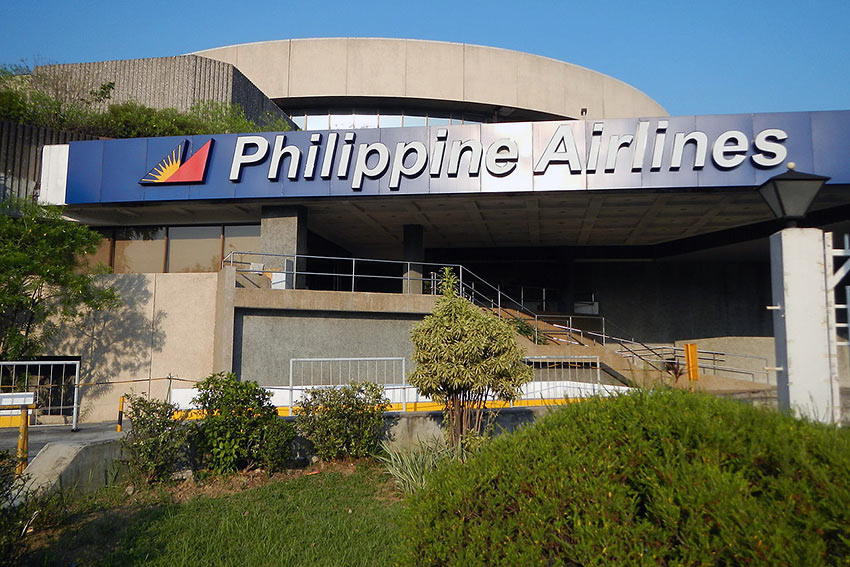
Tuesday
I spent a half a day chasing after the hospital documents because I had to line up and pay fees to obtain it.
Wednesday
I drove all the way to the downtown main PAL ticketing office. When I stepped in at 9 a.m., Mr. Granada, a massively overweight agent, told us the exception only applied if I were hospitalized, i.e., all those hospital documents were worthless. I needed to pay the full price; $300 more, “but if you want to complain, only my manager could decide on your case.” He told me his manager would be in at 3 p.m.
We returned at 3pm but by that time, a crowd had already gathered so I waited in line for an hour. Mr. Granada then rambled on about a penalty for my “no show” and I explained that my travel agent had already cancelled it. He pretended not to see that in my records. His face frowned realizing I had outwitted him from paying a penalty fee. Then he came up with a new scam. He said I should have made a reservation. I told him I told bald headed Frank to do that for me. He said there was no record of the reservation. He claimed the Thursday flight was fully booked but he would be able to squeeze me in for $1,200 more.
Mr. Granada was testing to see how desperate I was to get out of the country. I called his bluff and told him I could wait. When he realized I was not in a hurry he went to the back room and conferred some more “with his manager” (if there really was a manager). By that time, he returned, I had already checked for alternate airlines. The cheapest fare was about $500 at EVA Air. Granada came back and said the cheapest one he could get me for the flight leaving on Thursday was just a few dollars off the competitor. It was either pay a little more with another airline (and deal with the hassle of transferring flights) or buy the ticket he was offering. I had to bite the bullet and take up his offer.
Thursday (Escape Day)
It was only when the plane left the ground that I could relax. I looked around the plane and there were several empty seats … I realized Mr. Granada had lied about the plane being fully booked. It appears the scoundrel still won in the end.
Epilogue
Philippine Airlines (PAL) has a local moniker: PAL stands for Palaging Always Late. “Palaging” means “Always” so in English it means “Always, Always Late.”
I have written them to ask for an explanation and they have not responded.
Their booking system is outdated. They slide prices according to your desperation. You’d be a fool to change your itinerary once you are trapped in the country.
Steve Rosenfield — Photographer and T-Boy writer:
Story of Lost Luggage
One Friday in December, my wife Elaine and I boarded a flight from Los Angeles non-stop to London Heathrow for the purpose of attending our daughter Amanda’s engagement party in London. The engagement party was to take place in Loughton, Essex, just north of London, beginning on Sunday at 3:30 PM. The engagement party was being hosted by our future in-laws, Gary and Suki, and was specifically scheduled during the Christmas holiday so that my wife and I could attend. There were over 200 guests expected to attend the engagement party.
Our American Airlines flight was scheduled to arrive in London Heathrow at 1:30 PM on Saturday where our in-laws had arranged for a car service to pick us up and bring us to Loughton.
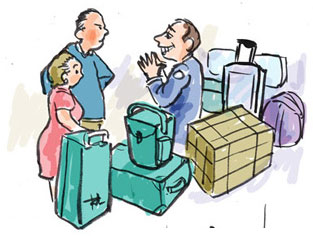
As the flight approached Heathrow, the plane could not land due to poor weather conditions. After circling over Manchester, England for an hour, we were advised by the flight crew that Heathrow was closed, and the flight was being diverted to Brussels. We landed in Brussels at about 4:30 PM local time and sat on the plane for about 2 hours when we were told that busses would soon be arriving to transport all passengers to the terminal from where we would be bused to the Holiday Inn for the night. The flight crew also advised passengers that luggage could not be off-loaded because there were no ground crew personnel available to do the work. We were eventually bused to the hotel where we spent the night and were told to return to the terminal Sunday morning to hopefully re-board the plane around 11:00 AM and make the short flight back to London Heathrow.
My wife and I arrived back at the American Airlines terminal in Brussels at about 9:00 AM Sunday morning and stood in line with many other diverted passengers to find out about the continuing flight to Heathrow. Unfortunately, Heathrow was still closed, and the airline was handing out hotel room vouchers for Sunday night. We were told that the luggage was still on the plane which was still on the tarmac in Brussels.
The local time was now about 10:00 AM in Brussels – 9:00 AM in London. My wife and I had to make a decision – abandon any hope of attending our daughter’s engagement party (which was not a good option) or finding another way to get to London by 3:30 PM that afternoon.
When inquiring about our luggage (three suitcases) if we were to get to London by other means, we were told by the AA agent in Brussels that the luggage would end up at its final destination (Heathrow) and that we could then have the luggage delivered to our local address in the London area.
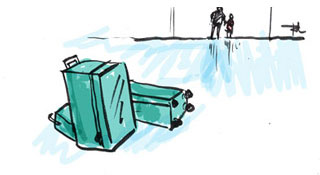
After listening to other travelers, who were in a similar predicament, trying to get onto other flights to Birmingham or Manchester, England, or trying to get tickets for the EuroStar train from Brussels to London (which they were told was sold out), we opted to look into renting a car and driving to Paris, and from there boarding the train to London. I spoke with an agent at the Hertz car rental desk in the airport who told me that I did not need to drive to Paris, but instead could drive to Calais, a couple of hour drive, and catch the EuroStar from there to London. In the interim, my wife rented a mobile phone in the airport so that we could stay in communication with our daughter and future in-laws as we made our way back to London.
The drive to Calais took about 2 hours in the snow getting us to the train station by about 1:30 PM local time. We found the train station in Calais and went to the ticket window with the intent of purchasing two tickets for the EuroStar from Calais to London but were told that the next passenger train was not scheduled to leave until 6:00 PM that evening. Obviously, if we had waited until 6:00 PM for the train, the engagement party would have ended by the time we arrived in London. The ticket agent suggested that we take the next car-train which was scheduled to leave about 3:00 PM local time, arriving in Dover, England about 35 minutes later. With the UK being one hour behind France, we would arrive in Dover about 2:45 PM local time which would hopefully give us enough time to get to our daughter’s engagement party before it ended at 6:30 PM.
The train was late, and we finally arrived in Dover at about after 3:30 PM making our way to Loughton, Essex, arriving at the engagement party about 5:30 PM, and were fortunate to at least having been able to spend about an hour meeting our future son-in-law, his parents and family, and all of the other guests.
The next day, I returned the rental car to a local Hertz office and began calling American Airlines to check up on our luggage which we assumed was still in Brussels since we were told that Heathrow was still closed. Getting through to American Airlines on Monday was impossible and Tuesday was not better. We called our daughter back in Los Angeles who contacted American Airlines in Dallas and put us on a conference call with the delayed baggage department personnel. We filed our delayed/missing baggage report and were told that we would receive a call (to our local London number) once the bags were found. We were also told that the airlines would reimburse my wife and me up to $300 US for both to buy replacement toiletries and clothing.
My wife and I did go shopping for basic toiletries and clothing but ended up borrowing clothes and cold weather gear from our soon to be in-laws. We were hoping that our bags would arrive and the need to purchase much of what we were missing would not be necessary.
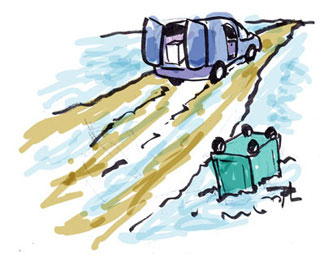
We continued to check the AA website for updates and tried calling a few times, but nothing changed. Then, on Thursday, December 23rd, we talked to an AA agent who told us that one of our bags (the smallest one) was found and that we could arrange for delivery as soon as we filled out the customs forms and sent them in. The forms were emailed to us, filled out and returned that evening. We received confirmation that the custom forms were received and that the bag was scheduled for delivery hopefully within two days due to the backup. The bag never arrived, nor did we hear any news from American Airlines for the remainder of our stay in London.
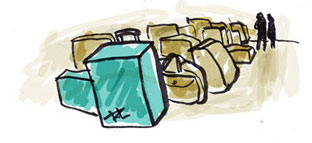
Our scheduled departure from London to Los Angeles was on Sunday, December 26th at 11:10 AM. My wife and I arrived at Heathrow at about 8:00 AM with the intent of going to AA baggage and trying to find any of our luggage. We were escorted to the pen where all of the missing/ delayed bags were being stored and, with the assistance of the AA personnel there, searched all of the bags without finding our luggage. When we asked about the one bag that American had told us was found and was to be delivered to our London location, no one could tell us what happened to that bag despite someone from the baggage department having physically seen and touched that bag several days earlier.
Three weeks after arriving back home in Los Angeles, our luggage was finally delivered although my wife’s new Ugg boots were missing and presumably stolen from her bag.
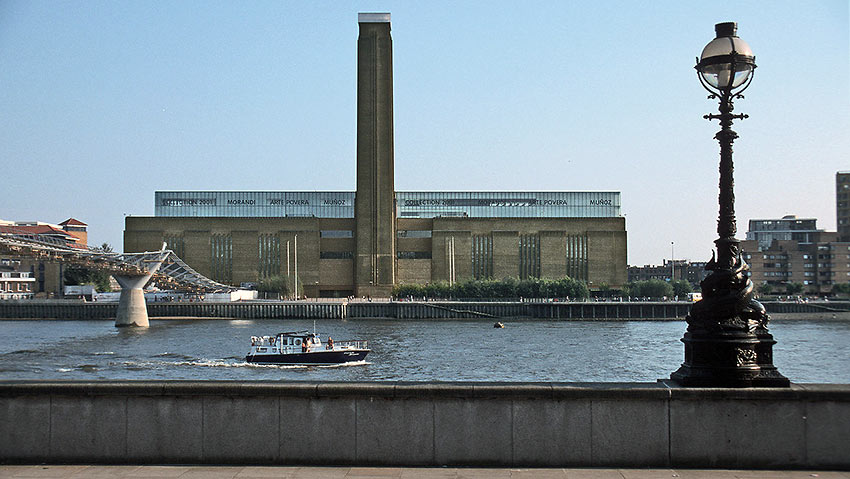
Roger Fallihee — T-Boy writer:
Rocket Salad in London
After a wonderful and exhausting day of London sightseeing, that culminated with a stunning viewing of Lichtenstein: A Retrospective, at the Tate Modern, Dot and I ducked into an inviting Italian Bistro for a pre-theatre dinner. Little did we know that our decision to share a Rocket Salad would wipe out our itinerary for the next forty-eight hours.
At around 1:00 am I woke up with the unmistakable feeling of impending gastronomic doom, the kind that lets you know that you had better be in a bathroom within ten seconds or else. I will exclude all the unnecessary details here except to say that the attack was both frightening and ferocious.
I climbed back into bed and my loving and sympathetic wife and I retraced our meals of the day, hoping that our sleuthing would produce an obvious culinary culprit. The Rocket Salad was the only food that we shared. Dot suddenly leaped out of bed and bolted toward the bathroom door. Mystery solved.
For the next several hours our hotel room took on the look and feel of a traditional English farce, with us crossing paths in and out of the bathroom, desperately hoping that one of us would be finished before the other needed the room. I started to worry that our inability to sip even a tiny amount of water could force us into an ER and IVs, courtesy, of course, of the National Health Service.

Around 9:00 am I decided to make my way down to the dining room before they ended the breakfast food service to get some toast or rolls or fruit or anything that might be able to be successfully consumed. I made it half-way to the elevator when nature forced me to head back to our room… quickly.
I reached out to the front desk at the Park City Grand Plaza Hotel in Kensington and as I explained our predicament to Ashley she said, “Can I pop up to your room?” A few minutes later Ashley arrived with a notepad. “Let’s make a list and I’ll run to the market.” We asked for ginger ale, Premium Saltines, oranges and anything else that she thought might be appealing. Ashley came back an hour later with two bags of snacks, beverages, candles and matches (thoughtful and welcome) and a few magazines.
Throughout that day and the next, Ashley and her coworkers called regularly to check on us. They made additional trips to the market and offered to take either of us to the ER if needed. By the following morning we were feeling mostly human again, but not completely out of the woods, so we decided to hunker down for another day.
The next morning, we woke up and it was as if nothing had ever happened. We felt great. We took the tube over to the Churchill War Rooms for a fascinating tour of the tiny rooms that PM Churchill, General Eisenhower and others used to plot the demise of Adolph Hitler.
As we wandered the streets near the Parliament we realized that we were actually hungry. I asked Dot what she was in the mood for. She dryly replied, “Mmmm, how about a nice Rocket Salad for two?”
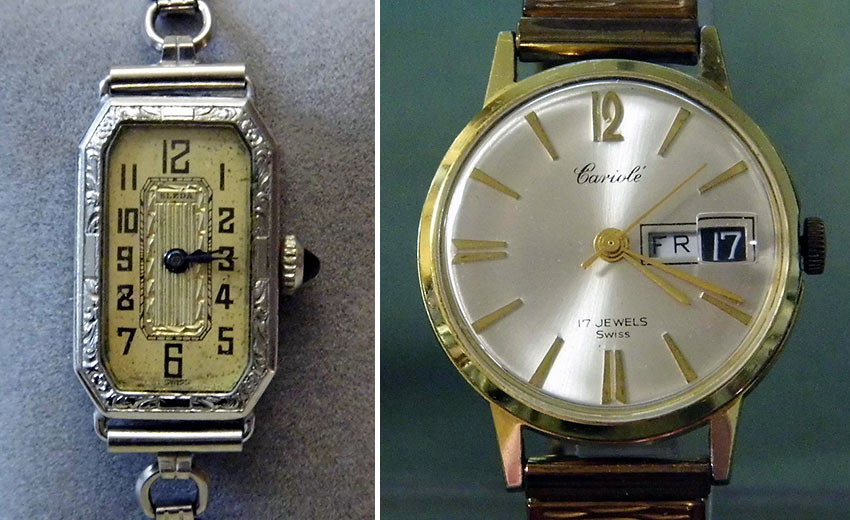
T.E. Mattox — T-Boy writer:
I’m not going anywhere near those places!
Although, I did buy a Swiss watch in Zürich.
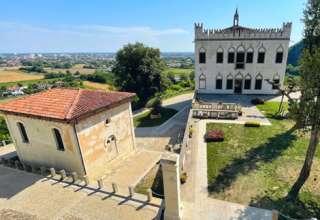




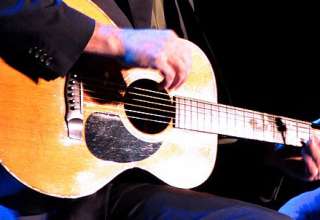


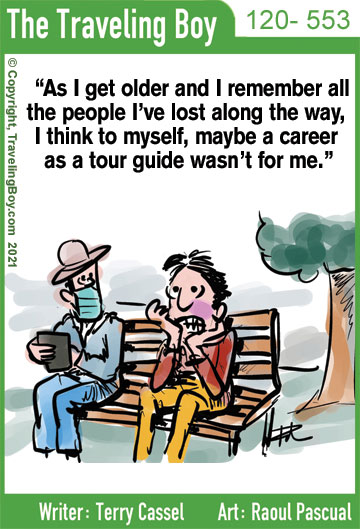
















Bill Cartmel Maroldo
April 22, 2021 at 11:48 am
For the most part, travel is a double-edge sword. I love being in a new place, and exploring the highlights – whether it be a village, city, or country. But for me, every vacation has its travel nightmare and it usually comes at both ends of the flight. I guess it would be cliché to say “I hate flying,” and so instead I will say I despise it. From the park and ride (think of coming back and clearing off your car after a snowstorm); to arriving at the airport (they tell you to come early, but then you sit for a couple of hours next to someone talking loudly on their cell phone); to checking in (trying to relearn the “time saving” kiosks with instructions that change with each trip, and worrying your suitcase is 51 lbs.); to finding your gate (which just changed and is now at the other end of the airport); to boarding (feeling like I’m in line for a Rolling Stones concert); to finding your seat (which someone else is already sitting in, and the overhead storage is already full); to take off (the pilot telling us we’re backed up behind a few dozen other planes, but it won’t be long); to landing (for the moment it almost feels like it’s over, but it’s not); to disembarking (uh oh, my connection is taking off in a few minutes and they still haven’t opened the door); to retrieving the luggage (ok, I realize someone has to have the suitcase which gets loaded last onto the belt). Oh boy! Now I can look forward to finding the car rental and explaining why I don’t need insurance, and then figuring out how to get on the right highway since my GPS won’t work in the parking garage. But at last the vacation has begun, the hyperventilating has subsided, and I remember why it’s all worth it.